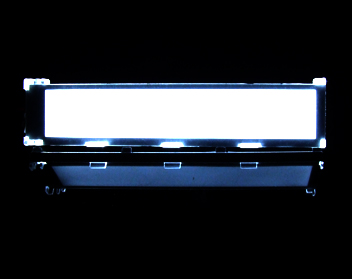Benefiting from the increasing demand from China's October 1 holiday, certain LED manufacturers have been receiving more backlight orders.
The demand growth in the Chinese market is attributed to China's subsidy policy for energy-saving products enacted since June 1, which caused the demand for new TV models in the coming mid-autumn and October 1 holiday to surge.
On the other hand, August and September are the peak seasons for panel exports. Given that panel price is on a slight uptrend, manufacturers increase their stocking motivation in advance. However, TV sales outlook is not clear yet, and the manufacturers are still facing the concern of double booking and high inventory level.
In addition, looking at LED companies' revenues, most orders are acquired by the first-tier companies amid the fierce competition. The LED industry continues to be haunted by the oversupply concern, so many manufacturers are still trying to develop a long-term plan. After the Taiwanese government allows Chinese companies to invest in Taiwanese ventures, Taiwanese firms begin to seek opportunities of forming alliance or mergers in order to maintain their competitiveness.
A lot of Chinese companies are interested in investing in Taiwanese ventures. With mergers, alliance, and product lines of wider variety, the companies can improve its strength in price negotiations and license technologies and patents with each other. In all, the industry can benefit from it and prevent it from falling into a price war. China's largest LED epi / chip maker, Sanan Opto, is seeking to invest in Taiwanese ventures in order to acquire key technologies and make inroads into LED backlight supply chain. Currently Sanan Opto has RMB 1.6 billion in cash. Along with Chinese banks' funds, the company has a chance to acquire a certain share of Taiwanese listed companies, which can help it increase its product lines (backlight applications) and improve its technological level.
LED Chip and Package Makers' Revenues Stayed Flat, Lighting Market Growth Momentum Comes into Play for 2H12
Benefiting from the large-sized backlight and consumer electronic orders from China, Taiwanese listed LED chip makers' August revenues hit NT$4.1 billion. However, following the LED price drop in August 2012, Taiwanese firms noted that the chip price will stay flat for the next few months. Formosa Epitaxy may be able to acquire more orders with the help of Mitsui in 2H12. With the increasing lighting orders, gross margin is expected to rebound. In order to increase customer base, the company will try to earn more backlight orders.
Taiwanese listed LED package makers' August revenues reached NT$5.39 billion. Lite-On's LED lighting components' mass production is going smoothly, not to mention that the orders from brand vendors will pour in well into 3Q12. With the IR LED market's stable development, the company's LED revenue in August reached NT$1.18.
Lextar's August revenue saw a growth, which was attributed to the growth momentum in the backlight applications, including monitor backlight and direct-type TV backlight. In addition, the company's lighting business continues to benefiting from the demand in Japan. The shipments mostly consist of light tube and panel light and LED light tube orders from American lighting giant GE. Moreover, Lextar's down lights will make their way into North America.
With the competition persisting, Taiwanese package makers start to focus on UV LED and LED display in seek of maintain their sales revenue. In particular, Sanan Opto begins to receive orders from Taiwanese package makers for display market, and offer high C/P ratio chip, which help Taiwanese makers cut down their costs and in turn enter LED display' market share.





